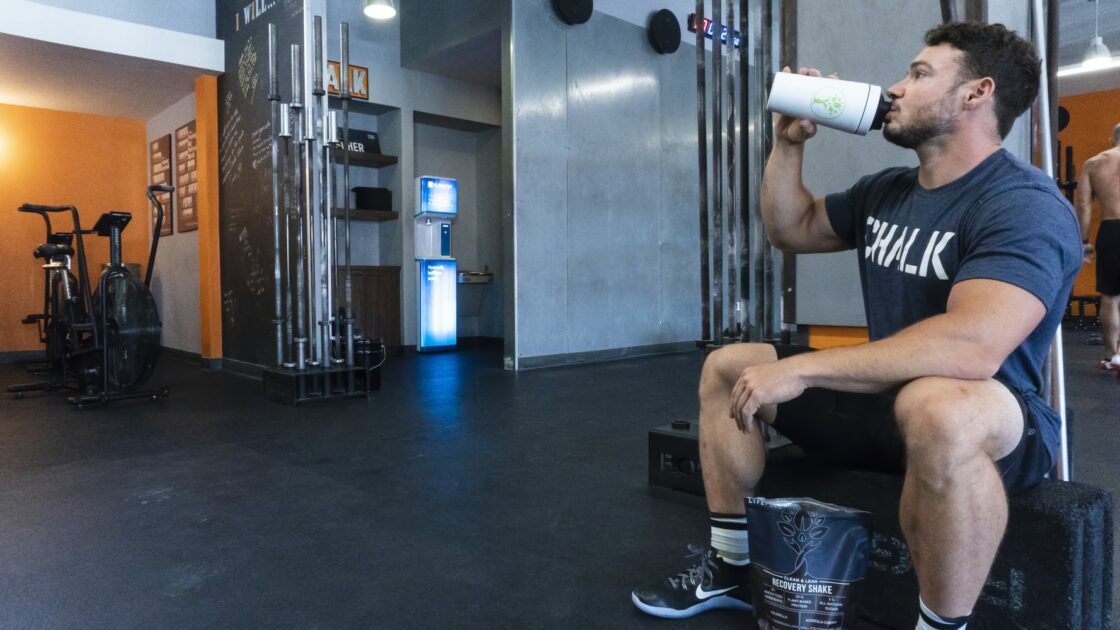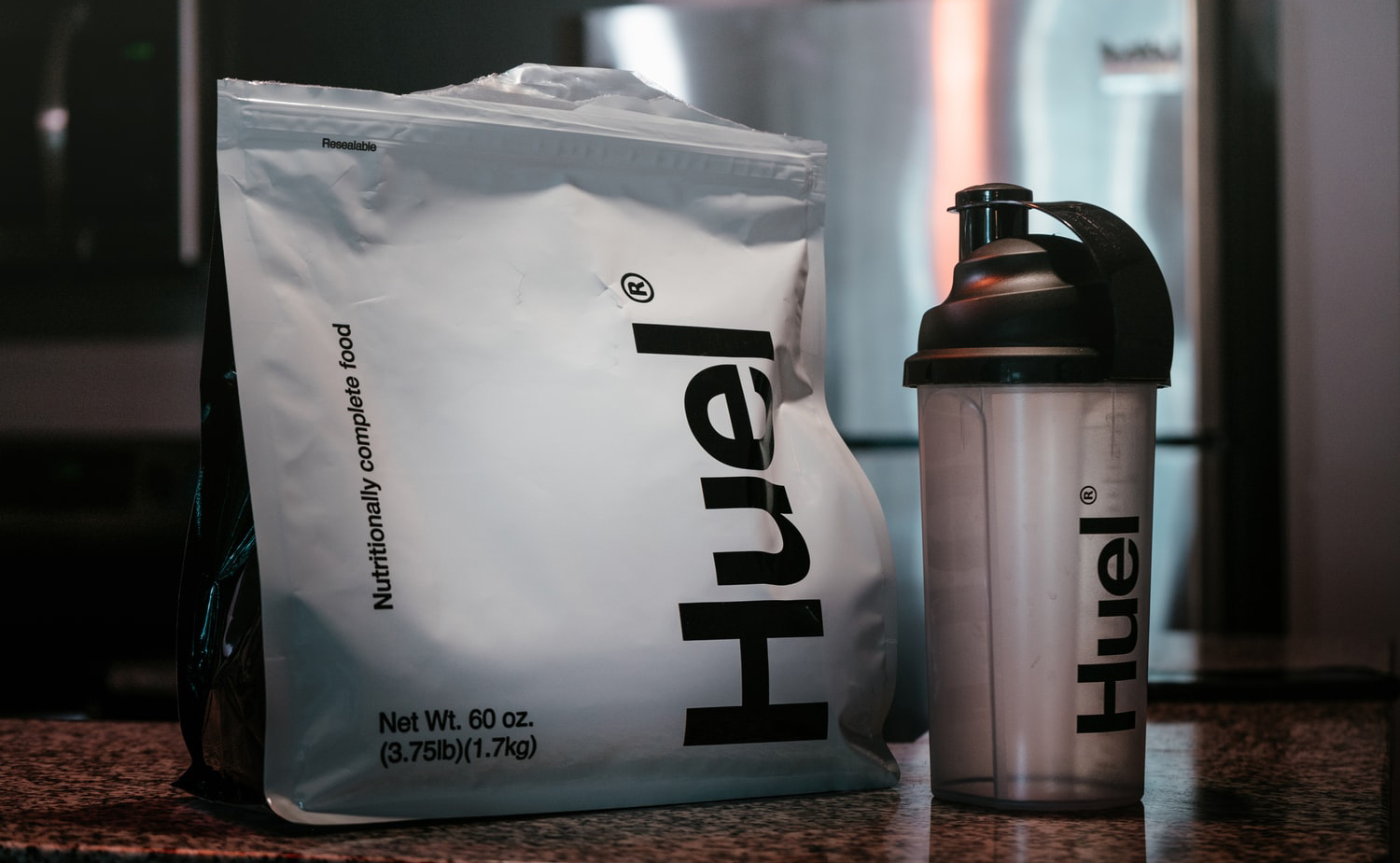With so many protein powder supplements on the market today, you may be unsure of which one is right for you. Here is the simple protein powder guide for bodybuilding supplementation.
What Are Protein Powders
Protein powders are one of the most widely used bodybuilding and sports supplements. They are made from concentrated animal and plant-based protein sources, such as milk, eggs and peas.
Protein (amino-acid) is a crucial building block for muscle growth, maintenance and repair. Without enough intake of protein within your diet you may find it difficult to reach your fitness and muscle building goals.
Protein powders are convenient sources of macronutrients and due to their consistency, they can be easy to digest and quick to absorb into the body, compared to whole food sources.
Many beginners believe that protein powder supplements should be your main source of protein, when in fact you should focus on consuming most of your daily protein from quality whole food sources, such as lean meats, fish, eggs, dairy and plant-based proteins. Protein powder supplements are just that…supplements. They should be included in addition to your whole food sources of the macronutrient, never as a replacement.
Protein powder supplements are perfect to consume between meals, before or after a workout and before bedtime. They can help you to consume enough protein to reach your fitness or bodybuilding goals when combined with a personalised and well-built dietary plan.
Looking to lose a few pounds? Protein is proven to increase fullness while reducing hunger. A higher protein intake increases levels of the satiety (fullness) hormones GLP-1, cholecystokinin and peptide YY, while reducing your levels of the hunger hormone ghrelin. This means that it is perfect for weight management.
Vegetarians and vegans can often find it a challenge to consume enough dietary protein, even when consuming a varied diet. Protein powder supplement can therefore help top up protein intake to sufficient levels for both of these groups.

Why else are protein supplements useful? When amino acids are in abundance in your bloodstream they cannot be stored for a later period, when amino-acid levels are low, unlike the other two macronutrients, fats and carbohydrates. This means that if you have very low levels of amino acids in your bloodstream for a considerable period, your body may go into a catabolic state, where it breaks down amino acids from existing tissue within the body. This is counterproductive, especially if your goal is to increase muscle hypertrophy (muscle mass). The solution to this is to ensure that your body has enough amino acids within the bloodstream to extract and use for protein synthesis when it is required.
By consuming enough protein at regular intervals (4 or 5 times) throughout the day (not just in one meal), you are putting your body in a better position for there to be a sufficient and constant level of amino acids in your bloodstream.
Protein powders are classified into three main types:
- Protein concentrates: Produced through the extraction of protein from whole foods, such as milk, using heat and acid or enzymes. Typically, concentrates contain 70–80% protein, with the remaining 20–40% composed of fat, carbs and minerals.
- Protein isolates: Similar to concentrates, however, isolates go through an additional filtering process to remove more sugars (carbs) and fats, further concentrating the protein. Protein isolate powders contain about 90–95% protein.
- Protein hydrolysates: Produced from purified protein sources by heating at an optimum temperature and at a optimum PH with acid or, preferably, addition of proteolytic enzymes, followed by purification procedures – hydrolysates are absorbed more quickly by your body.
Whey Protein
Whey is the most popular protein supplement used by professional athletes and individuals looking to build muscle or to aid in fat loss. Whey protein is digested and absorbed faster than other proteins, making it perfect to consume before a workout or for post-workout recovery.
Whey is produced from milk. A by-product of heating milk, which separates from curds during the cheesemaking process. While it has a high protein content, it also contains lactose, a milk-based sugar that some people have an intolerance to.

Unlike whey concentrates, whey isolates contain less milk sugar as it is lost during the process. Whey isolates would therefore be more a better choice for those who are lactose intolerant.
Whey has the highest branched-chain amino acid (BCAA) content. One of the BCAA’s, leucine, plays a major role in protein muscle growth and recovery after intense training. On average, whey protein will consist of leucine, isoleucine and valine in a 2:1:1 ratio.
Casein Protein
Casein is a slow-digesting milk protein. Typically, casein can take more than six hours to be fully digested and absorbed by the body, which makes this protein great for a sustained amino acid delivery to muscle.
Casein interacts with stomach acid to form thick globules. This reduces the surface area for which your stomach acid can act on, slowing down stomach emptying and delaying your bloodstream’s absorption of amino acids
Due to its slow absorption, casein is a popular protein supplement to consume before bedtime, as it gives the user a sustained amino-acid delivery throughout the night.
Egg Protein Powder
Egg protein found in protein powders is contains mostly egg-white protein isolates rather than whole eggs. This is a great alternative for those with a lactose intolerance.
Egg protein is one of the best quality proteins. Egg protein contains all of the essential amino acids necessary for protein synthesis and holds a biological value (BV) index of 100. The evaluation scale used for assessing protein, egg protein is used as a reference standard against all other foods.
On the evaluation scale most commonly used for assessing protein, egg protein is at the highest point, 100, and is used as the reference standard against which all other foods are assessed

Pea Protein Powder
Pea protein supplement is not as well-known, but is a great alternative for vegans, vegetarians, and those with dairy allergies – where whey, casein and egg protein powders would be an issue.
Pea protein has a high BCAA content and has a high digestion rate of 98 percent – allowing the body to utilise the majority of the protein per serving. For this reason, pea protein supplement are one of best plant-based protein powders available.

